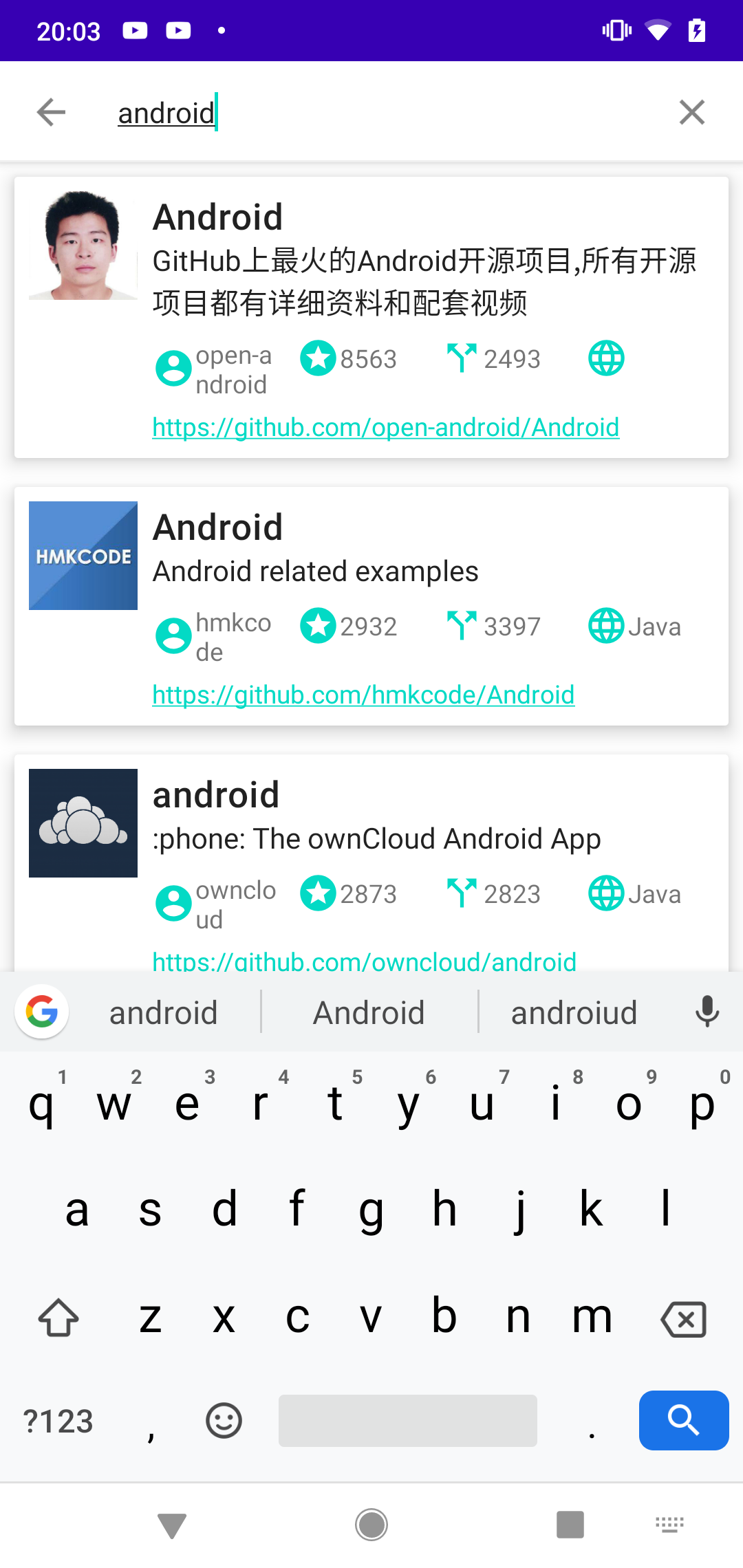class SearchViewModel(searchRepository: SearchRepository) : ViewModel() {
val query = MutableLiveData<String>()
@FlowPreview
@ExperimentalCoroutinesApi
val repo = query.asFlow()
.debounce(300)
.filter {
it.trim().isEmpty().not()
}
.distinctUntilChanged()
.flatMapLatest {
searchRepository.searchRepo(it).asFlow()
}.asLiveData()
}
-
Debounce: Here, the debounce operator is used with a time constant. The debounce operator handles the case when the user types “a”, “ab”, “abc”, in a very short time. So there will be too much network calls. But the user is finally interested in the result of the search “abc”. So, you must discard the results of “a” and “ab”. Ideally, there should be no network calls for “a” and “ab” as the user typed those in very short time. So, the debounce operator comes to the rescue. The debounce will wait for the provided time for doing anything, if any other search query comes in between that time, it will ignore the previous item and start waiting for that time again with the new search query. If nothing new comes in that given constant time, it will proceed with that search query for further processing. So, debounce only emit an item from an Observable if a particular timespan has passed without it emitting an another item.
-
Filter: The filter operator is used to filter the unwanted string like empty string in this case to avoid the unnecessary network call.
-
DistinctUntilChanged: The distinctUntilChanged operator is used to avoid the duplicate network calls. Let say the last on-going search query was “abc” and the user deleted “c” and again typed “c”. So again it’s “abc”. So if the network call is already going on with the search query “abc”, it will not make the duplicate call again with the search query “abc”. So, distinctUntilChanged suppress duplicate consecutive items emitted by the source Observable.
-
flatMapLatest: Here, the switchMap operator is used to avoid the network call results which are not needed more for displaying to the user. Let say the last search query was “ab” and there is an ongoing network call for “ab” and the user typed “abc”. Then you are no more interested in the result of “ab”. You are only interested in the result of “abc”. So, the switchMap comes to the rescue. It only provides the result for the last search query(most recent) and ignores the rest.
Copyright 2019 Hari Singh Kulhari
Licensed under the Apache License, Version 2.0 (the "License");
you may not use this file except in compliance with the License.
You may obtain a copy of the License at
http://www.apache.org/licenses/LICENSE-2.0
Unless required by applicable law or agreed to in writing, software
distributed under the License is distributed on an "AS IS" BASIS,
WITHOUT WARRANTIES OR CONDITIONS OF ANY KIND, either express or implied.
See the License for the specific language governing permissions and
limitations under the License.
